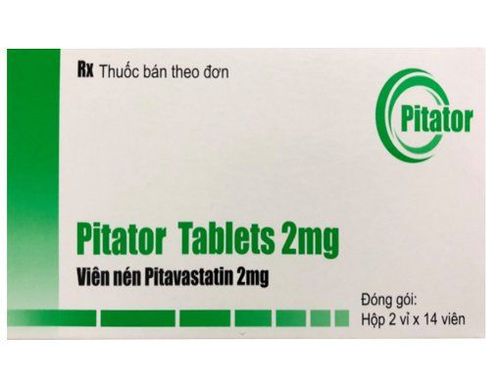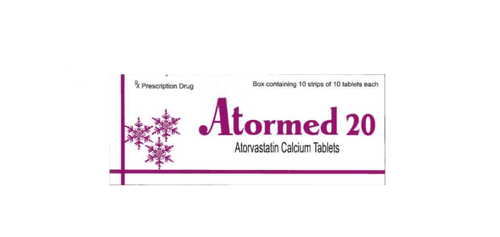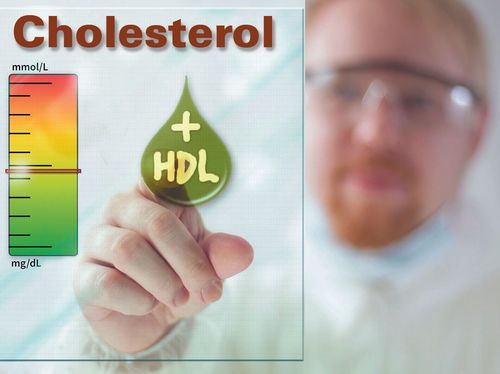This is an automatically translated article.
Changing the foods you eat every day can lower cholesterol and improve blood fats. In which, adding fiber content from vegetables is a safe natural way. So what vegetables should we eat to reduce blood fat?1. What is blood fat?
Blood fat, also known as cholesterol, is a type of fat in the blood that is naturally produced by the body. It is also found in some foods such as eggs, organs (such as kidneys and liver), and animals.Each of our bodies needs some cholesterol to function properly. When you have high levels of cholesterol in your blood (also called hyperlipidemia), it accelerates the process of atherosclerosis. This is when plaque builds up in the artery walls, causing the lumen to become narrower. This makes it difficult for blood to circulate and over time can cause a heart attack or stroke.
High cholesterol in the blood usually doesn't show any symptoms. Blood tests can help and tell if a person has a disease. A blood test will provide information regarding the levels of 'good' and 'bad' cholesterol in the blood.
Cholesterol is carried around the body by different 'carriers' (also called lipoproteins). Cholesterol is divided into two main groups:
Low-density lipoprotein (LDL) cholesterol: 'bad' cholesterol. LDL cholesterol is 'bad' Because if you have too much, it gets stuck in your artery walls. High-density lipoprotein (HDL) cholesterol: "good" cholesterol. HDL cholesterol is "good" because it helps remove "bad" cholesterol from the blood vessels. Triglycerides are the most common form of fat in the body, storing and transporting fat in the blood. Any extra energy from food that your body doesn't need is converted to triglycerides. High total blood cholesterol is a measure of the concentration of all cholesterol and triglycerides in the blood, which is a risk factor for cardiovascular diseases.
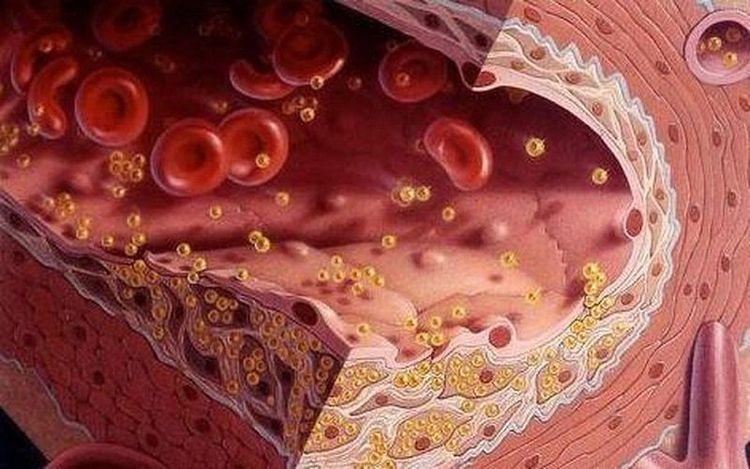
Mỡ máu hay còn gọi là cholesterol, một loại chất béo trong máu được cơ thể sản xuất tự nhiên
2. What vegetables to eat to reduce blood fat?
Different foods lower cholesterol in different ways. Certain foods provide soluble fiber, which binds cholesterol and precursors in the digestive system and pulls them out of the body before they enter the circulation. Others provide the body with polyunsaturated fats, which directly reduce LDL.
Vegetables are a food group known for their high nutritional value and many health benefits. Many studies have proven vegetables to reduce blood fat.
While all vegetables are good for heart health, dark leafy greens are especially beneficial with their many nutritional benefits.
Dark leafy greens, such as kale and spinach, contain lutein and other carotenoids, which have been linked to a reduced risk of heart disease. Carotenoids act as antioxidants to scavenge harmful free radicals that can lead to atherosclerosis and hardening of the arteries.
Dark green leafy vegetables can also help lower cholesterol levels by binding to bile acids and causing your body to excrete more cholesterol before it enters the circulation. Therefore, this is considered a good fat-lowering vegetable. There are also studies showing that lutein lowers levels of oxidized "bad" LDL cholesterol and may help prevent cholesterol from binding to artery walls. In summary, dark green leafy vegetables are rich in carotenoids, including lutein, which have been linked to a reduced risk of heart disease and stroke.

Rau là một nhóm thực phẩm được biết đến với giá trị dinh dưỡng cao và nhiều tác dụng tốt đối với sức khỏe.
3. Vegetables to reduce blood fat
A diet rich in green vegetables is very good and necessary for the cardiovascular system, because green vegetables are rich in fiber and antioxidants, contain few calories, necessary to maintain a healthy weight. Certain vegetables are especially high in pectin, a type of soluble fiber that lowers cholesterol. Here are the names of vegetables that can easily be added to your daily diet:
Kale This is a vegetable rich in potassium, magnesium, antioxidants and fiber. Kale is good for the heart. The minerals in cruciferous vegetables (including cabbage and Brussels sprouts) can especially counterbalance the effects of sodium, preventing hypertension and lowering blood cholesterol.
Herbs and spices Spice up your dishes with herbs and spices whenever you can. They'll help you cut back on seasonings that are high in saturated fat while maximizing flavor. Spices and herbs are also high in antioxidants, which can help improve cholesterol levels when combined with vegetables. Some of the herbs that have the ability to reduce cholesterol include basil, cilantro, rosemary, sage, ginger, garlic, tarragon, black and red pepper, mint, and oregano.
Spinach Adding more spinach to your daily menu can help lower cholesterol by boosting the body's production of nitric oxide (NO), which dilates blood vessels and reduces atherosclerosis.
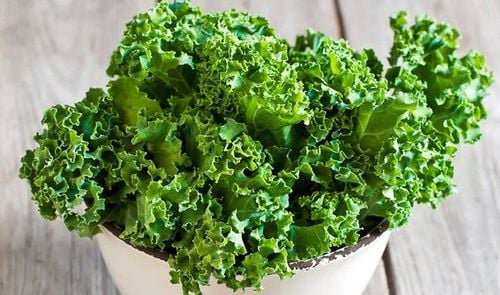
Cải xoăn là loại rau giàu kali, magie, chất chống oxy hóa và chất xơ
4. Incorporate a low cholesterol diet
When it comes to investing money, experts recommend creating a diversified portfolio instead of putting all your eggs in one basket. The same is true of eating to lower cholesterol. Adding a variety of foods to lower cholesterol in different ways is more effective than focusing on one or two foods that have the potential to lower cholesterol.
A largely vegetarian "cholesterol-lowering food category" significantly lowers LDL, triglycerides, and blood pressure. The key components of a low-fat diet are plenty of fruits and vegetables, whole grains instead of highly refined ones, and mostly plant-based protein. Foods like: oats, barley, okra, and eggplant, all of which are rich in soluble fiber, soy protein, and whole-grain almonds.
Of course, switching to a cholesterol-lowering diet requires more attention than just daily statin use. Besides, a diet rich in fruits, vegetables, beans and nuts will be good for the body in other ways besides lowering cholesterol. This diet helps control blood pressure, protect blood vessels, good for bones, digestive health, vision and mental health.
When you have explained what vegetables to eat to reduce blood fat, you should give yourself a scientific diet with a variety of fresh fruits and fresh vegetables. In addition, patients with high blood lipids should have regular health check-ups to check blood fat indexes and take timely and effective treatment measures.
Vinmec International General Hospital has been implementing a screening package for diabetes and dyslipidemia for all subjects. The examination is always performed by a team of doctors, qualified medical staff from major hospitals across the country. Besides, the hospital is also equipped with modern facilities and equipment to bring comfort to customers.
With the above criteria, Vinmec is now becoming a prestigious examination and treatment address that is trusted and appreciated by many people.
Please dial HOTLINE for more information or register for an appointment HERE. Download MyVinmec app to make appointments faster and to manage your bookings easily.
Reference source: health.harvard.edu




